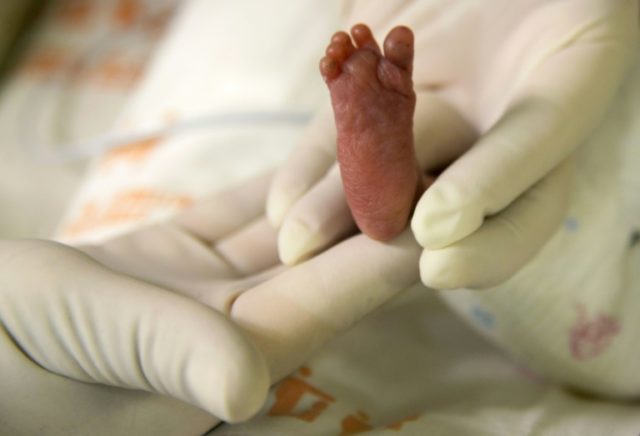Pope Francis said Saturday that the medical profession should be committed to defending the sacred value of human life and reject abortion as incompatible with medical practice.
In an address to a Vatican-sponsored conference titled “Yes to Life!” Francis warned against anti-life attitudes that lead to violence against the most vulnerable members of society: the unborn.
Unfortunately, in today’s reigning culture, “fear and hostility towards disability often lead to the choice of abortion, treating it as a means of ‘prevention,’” the pope said, and yet human life is always “sacred and inviolable.”
Francis went on to condemn “the use of prenatal diagnosis for selective purposes,” saying it stems from “an inhuman eugenic mentality, which keeps families from accepting, embracing, and loving their weakest children.”
The pontiff also rejected arguments that being pro-life is a “Catholic” position that should not be imposed on a secular society.
“Sometimes we hear: ‘You Catholics do not accept abortion, it is a matter of your faith,’” Francis said. “No: it is a pre-religious problem. Faith is not the issue. It is not unrelated, but it is not the issue: this is a human problem. It is a pre-religious problem.”
“Let’s not blame faith for something that lies outside its domain. It is a human problem,” he said.
The pope went on to suggest that it is enough to answer two questions to get to the bottom of why abortion is always morally evil.
“First question: is it okay to eliminate a human life to solve a problem? Second question: is it okay to hire a hit man to solve a problem?” he said. “This is the point. Do not blame religion for something that concerns the human. It is not lawful. Never, ever eliminate a human life or hire a hit man to solve a problem.”
“Every child announced in a woman’s womb is a gift, which changes the history of a family, of a father and a mother, of grandparents, and brothers and sisters. And this child needs to be welcomed, loved, and cared for. Always!” he said.
“When a woman discovers that she is expecting a child, a sense of profound mystery immediately fills her,” the pope said. “Women who are mothers know this. The awareness of a presence growing inside her pervades her whole being, making her no longer just a woman, but a mother.”
Moreover, he said, “between her and the child an intense cross-dialogue is immediately established, which science calls cross-talk. A real and intense relationship develops between two human beings, who communicate with each other from the first moments of conception to foster mutual adaptation as the child grows and develops.”
“This communicative capacity is not only the woman’s, but above all the child’s, who in his individuality sends messages to reveal his presence and his needs to the mother,” Francis continued. “This is how this new human being immediately becomes a son or daughter, moving the woman with all her being to reach out to him.”
In his address, the pope also addressed modern developments in perinatal care, which can do wonders to minimize disabilities already from the womb.
“Children in the mother’s womb, if they have pathological conditions, are small patients,” Francis said, “who can often be treated with pharmacological, surgical, and extraordinary assistance, capable of reducing that terrible gap between diagnostic and therapeutic possibilities, which for years has been one of the causes of abortion and the abandonment of care at the birth of so many children with serious pathologies.”
“It is essential that doctors perceive not only the goal of healing, but the sacred value of human life, whose protection is still the ultimate goal of medical practice,” he said. “The medical profession is a mission, a vocation to life, and it is important that doctors be aware that they themselves are a gift for the families entrusted to them.”
“Abortion is never the answer that women and families seek,” he said. In the case of a sick child, “the practical, human and spiritual difficulties are undeniable, but precisely for this reason more incisive pastoral actions are urgent and necessary to support those who receive sick children.”
“That is why it is necessary to create spaces, places, and ‘networks of love’ to which couples can turn, as well as to devote time to accompanying these families,” he said.

COMMENTS
Please let us know if you're having issues with commenting.